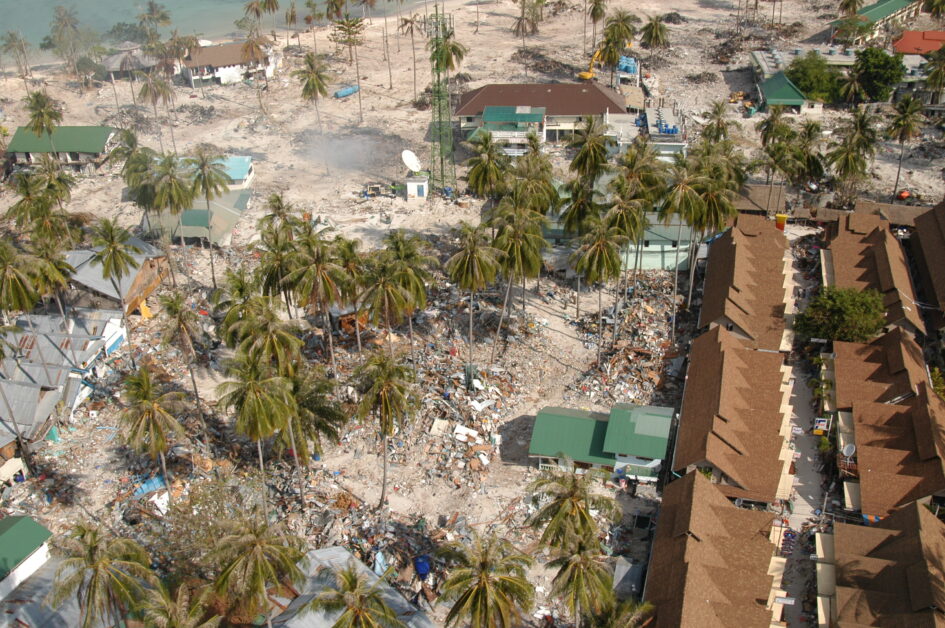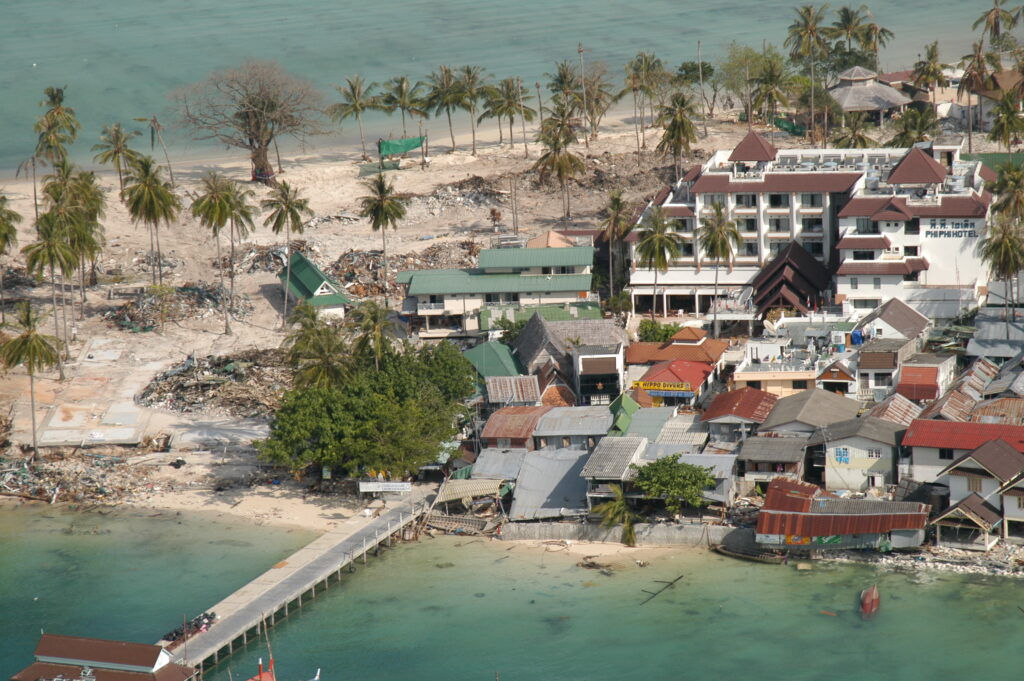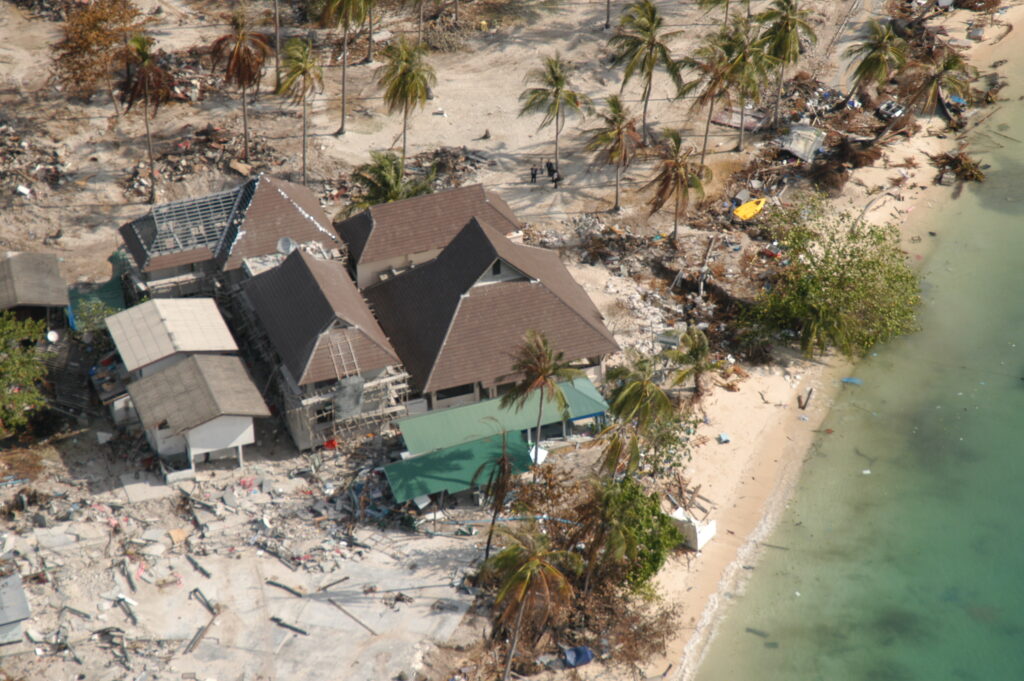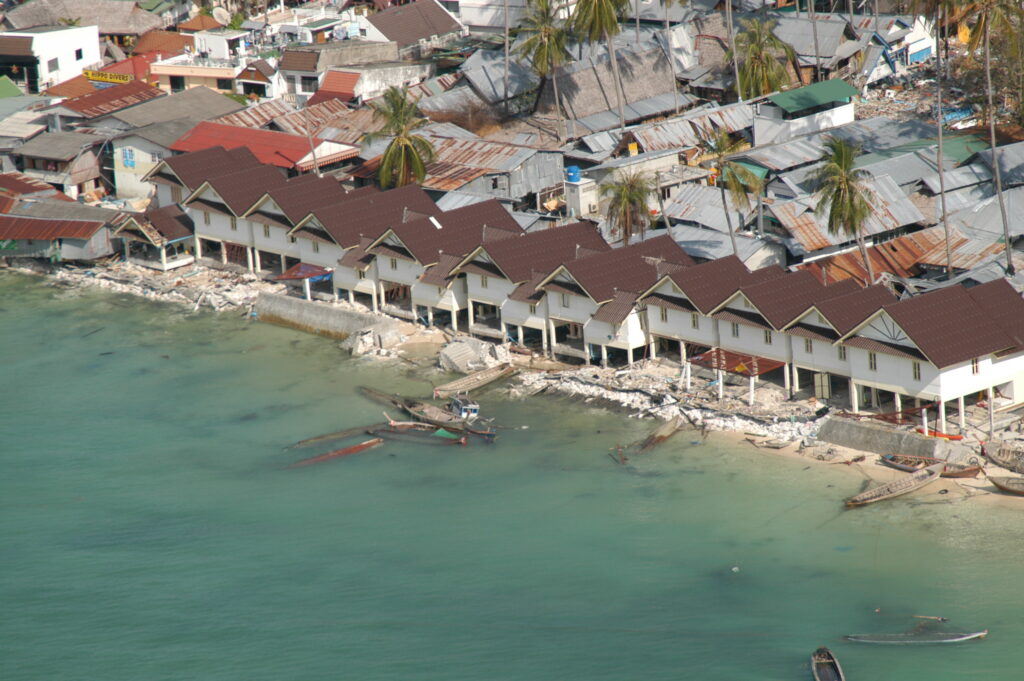The Australian Federal Police are today remembering the victims and families impacted by the 2004 Boxing Day Tsunami and reflect on the support and assistance provided by Australian law enforcement and forensic specialists as part of the large scale international response to the natural disaster.
Current and former AFP members are attending commemorative services in Khao Lak, Thailand this week to remember and pay respects to those who lost their lives 20 years ago.
On Sunday, 26 December, 2004, an undersea 9.1 magnitude earthquake in the Indian Ocean triggered one of the largest natural disasters in recorded history.
The tsunami resulted in the deaths of more than 227,000 people and caused extensive damage and displacement to 15 countries across Asia, including in Thailand, Indonesia, Sri Lanka and India.
The AFP launched Operation Cawdor immediately following the tsunami, deploying specialist teams of forensic scientists, pathologists, odontologists and family support and communications staff to Thailand.
The Thai government requested AFP assistance to jointly command the international disaster victim identification (DVI) effort with more than 30 countries involved.
The AFP and Australian state and territory law enforcement agencies deployed more than 300 officers to the popular tourist towns of Phuket and Khao Lak to establish the DVI effort. The cities were selected due their proximity to an airport and the impact of the tsunami.
DVI involves the physical recovery and identification of the remains of people who are victims of disasters, both natural and those caused by human actions.
Using technology and procedures learnt from the 2002 Bali Bombings, the AFP was able to assist the Thai government to identify the dead, including 26 Australians, over the following 11 months.
AFP Superintendent Melissa Northam was the senior liaison officer in Bangkok when the tsunami hit and established the AFP’s Command Post in Phuket to help liaise with the Royal Thai Police.
“The AFP has a strong relationship with the Royal Thai Police built on trust and friendship over many decades, and the tragedy only brought us closer,” Supt Northam said.
“The devastation of the tsunami, coupled with the timing between Christmas and New Years, presented numerous challenges for all law enforcement to overcome.
“Challenges included a lack of ICT availability, the destruction of accommodation, utilities, water, transport and power services, the inability to access certain areas, delays in services – including coolers and containers to store the deceased – and managing the expectations of families in locating loved ones.
“The anniversary makes me proud to be an AFP member and is a reminder of the amazing demonstration of international humanity and sensitivity.”
“Disaster victim identification is a long and painstaking process, and it was pleasing to see many countries work together closely to identify so many of the victims from such a tragic event,” Mr Travers said.
“The AFP played a key command role in helping the Royal Thai Police identify victims, both Thai nationals and foreign visitors.
“Our day-to-day jobs included maintaining the preservation and security of the deceased, managing logistics for such a large-scale operation, and providing both emotional and physical support to those who had lost loved ones, no matter where in the world they came from.
“We cannot fathom how hard the past 20 years’ have been for families and friends impacted by the deaths of their loved ones; however, we take solace in our role with providing closure to those affected by this horrible tragedy.”
AFP Commissioner Reece Kershaw and executive members also attended a commemorative event in Canberra on 26 November, 2024, to recognise the impact on Australians and the region, as well as the Australian government response to the tsunami.






